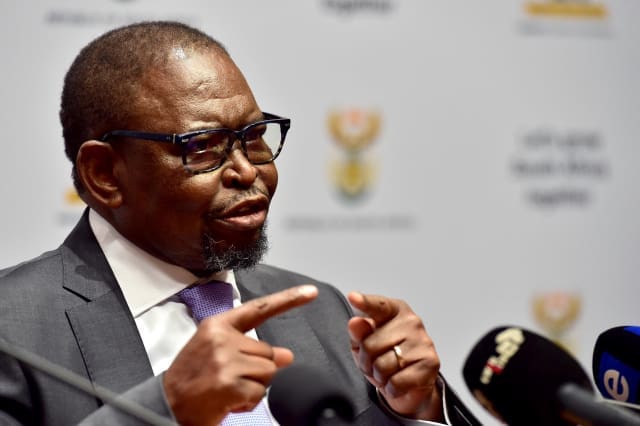South Africa’s delegation at the recently concluded Annual World Economic Forum (WEF) meeting in Davos, Switzerland, affirmed that the country is open to investment, and ready to partner with the local and global community to place the country’s economy on a higher, jobs-rich and more sustainable growth path.
This is according to a statement by Finance Minister, Enoch Godongwana, who led South Africa’s delegation to the WEF meeting, which was held from 16 – 20 January 2023.
“South Africa is on the road to economic recovery. The world recognises that. We have a long way to go, and economic outlook is fraught with risks and uncertainties. It will not be easy, but the WEF meeting has shown us that we are not walking alone.
“Many people still believe in our country. We must believe in ourselves,” Godongwana said on Wednesday.
The South African delegation acknowledged that addressing the electricity shortage in the country is the first and most important step to unlocking faster economic growth, creating employment, and attracting investment.
Through the Presidency, the National Energy Crisis Committee (NECOM) recently released a six-month update on progress in the implementation of the Energy Action Plan, which, among others, highlighted Eskom’s programme to buy power from companies with available generation capacity.
“Our society is undergoing rapid transformation, presenting us with as many challenges as it does opportunities. We must pull together, across borders and political affiliations to understand and overcome these challenges and take full advantage of the opportunities,” the Minister said.
South Africa used the Davos gathering as an opportunity to give the world details about the ambitious suite of reforms – in energy, infrastructure development, food security, job creation and the green transition – that the county is implementing to create a sustainable, vibrant and inclusive economy.
The meeting took place under the theme, ‘Cooperation in a Fragmented World’, which aptly captured the combination of economic, geo-political and social challenges currently faced by the globe.
The worldwide energy, food and cost of living crises, driven by the conflict between Russia and the Ukraine and fast-rising consumer inflation, were among the key issues that policy makers and businesspeople grappled with.
The climate crisis and its related socioeconomic and ecological impact were also high on the agenda.
Godongwana, along with his colleagues including the Minister of International Relations and Cooperation Naledi Pandor; Minister of Trade, Industry and Competition, Ebrahim Patel, and Minister of Human Settlements Mmamoloko Kubayi, took the unique opportunity of the WEF meeting to engage world leaders in business, government, academia and civil society on these and other South Africa specific issues.
The delegation was accompanied by a group of local business leaders and executives from the country’s top companies and banks, who put forward the message of a country with vast potential for investment.
The WEF meeting also allowed Africa to highlight the abundant benefits and potential of the African Continental Free Trade Area (AfCFTA).
The AfCFTA Secretariat and WEF, in a report titled, ‘A New Era for Global Business and Investment in Africa’, revealed that the single market is projected grow to 1.7 billion people and $6.7 trillion in consumer and business spending by 2030, with the latter set to more than double to around $16 billion by 2050.
On climate change, a key event was the launch of the Coalition of Trade Ministers on Climate, bringing together over 50 countries.
The coalition aims to promote trade and investment that encourages the adoption of goods, services, and technologies that mitigate climate change in both developed and developing countries. – SAnews.gov.za
